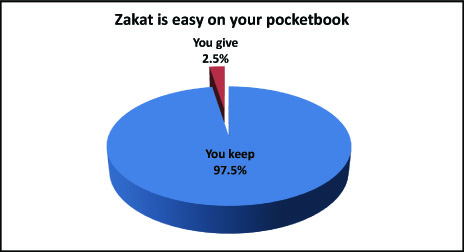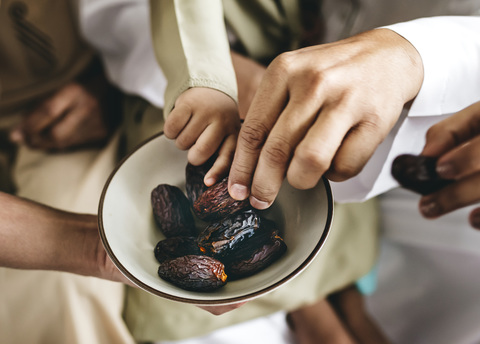
For the month of Ramadan, I wanted to talk to some of my colleagues who observe this Muslim tradition, so that I can understand more about what it involves and the reasons behind it.
What is Ramadan?
Ramadan is the fourth pillar of Islam.
It is the month when the Quran (the holy book) was revealed to the Prophet.
Ramadan is a time for Muslims to appreciate what they have and also to be able to help others who aren’t as fortunate.
How long does Ramadan last?
30 days.
What are the main things that happen during Ramadan?
Muslims will fast from sunrise to sunset and they will also increase their worship by reading the Quran and additional prayers.
They still pray 5 times a day, as normal. But the evening prayer (last prayer of the day) is extended.
Men will go to the mosque for congregational prayer and the Imam (the leader of prayer) will generally read one chapter of the Quran (30 chapters in total), so that by the end of Ramadan, they have read the whole Quran.
Women can also go to congregational prayer at the mosque depending on whether there are facilities available. Most women however read at home and their prayer is generally shorter, but they usually do extra forms of worship as well.
The third pillar of Islam, Zakat, is an obligatory donation of 2.5% of all financial assets to a Muslim charity. Most people will donate the full amount during Ramadan, but others may choose to spread this out throughout the year.

Is it mandatory to fast?
It is mandatory if you are able to, but there are exceptions which include:
Children under the age of 13 (but can if they want to)
Women who are pregnant or menstruating (but they are then expected to make those fasts up after, by the next Ramadan). This is because the body is already under stress and fasting would increase this
People with health conditions/who the doctor advises not to fast, e.g. diabetes (for every fast they miss, they pay a fixed amount to charity)
Elderly people (for every fast they miss, they pay a fixed amount to charity)
What do you do if you feel poorly during Ramadan? Are you allowed to drink some water or take a tablet for example if you have a bad headache?
It is all about mind over matter, BUT you can break it and aren’t punished for this, you just have to make it up after. Most people wouldn’t break their fast, but in situations where the individual really doesn’t feel able to continue fasting, they are allowed to stop.
What are the typical foods/drinks to have during the hours you’re allowed to eat?
You can eat what you want, but typically, the fast will be opened with dates and water. This is because the Prophet ate dates and they are a good source of energy.
Depending on what culture you are from will depend on what else you eat, e.g. Azra’s family will eat rice, curry, samosas, and onion bhajis, whereas Faisal’s family don’t eat very much of this and instead have fruit salad, harira (soup) and boiled eggs.
You don’t eat all at once – usually, you will break to read mid-evening prayer, and then return to eating.

Do you fast because it's a tradition/expected, or have your own motivation(s)? What do you feel you gain by observing Ramadan?
This is a very personal question so this is Azra’s take on it:
For me it is very normal, I want to fast, I don’t feel like it is forced upon me, I enjoy it, and it is such a great way for me to reconnect with God. It brings my family together as we all have the same schedule, and it brings awareness to the fact that there are other people who aren’t as fortunate as me, which makes me feel even more grateful and appreciative for what I have.
What’s the hardest thing / what’s the best thing?
This is also Azra’s personal view:
The hardest thing for me is the guilt I feel that sometimes I don’t realize how blessed I am and it’s not until I see people in a worse situation than me that it makes me realize what I have and be more grateful for it.
The best thing for me is that I am able to really focus on my relationship with God during this time, and I can let go of day-to-day life pressures/stresses.
What can others do to best support you during fasting?
No matter whether you observe Ramadan or not, it is important to have awareness and respect for the people that are observing it.
Employers should allow flexibility around this and check in with their employees observing Ramadan weekly to see if they can offer any additional support – e.g. understand that they may need to take extra breaks, that it might be easier for them to work from home, or that if they are in the office, they have access to an area where they can pray. Giving people an accessible environment where they can be their true self is really important.
How do you celebrate the end of Ramadan?
The end of Ramadan signifies the start of Eid, which lasts for 1 day.
There is an Eid morning prayer at the mosque which all men attend. Women can also attend but this is dependent on whether there is capacity.
A lot of mosques now rent out parks for example to allow for more people to attend. Here they might also have things like fairground rides for children.
What is eaten will depend on your culture. Azra will typically have a Pakistani menu and her family’s tradition is homemade sweet rice for breakfast. Others may have BBQs, biryani… the list goes on!
Eid is a great excuse to buy yourself a new outfit! Most Muslims will wear something traditional to their culture but it is very much whatever the individual wants! E.g. some women will wear a sari, some men and women will wear a Jellaba (a long gown), others will wear jeans and a t-shirt.
Muslims will generally give each other gifts, which could be either money or a physical present.
Some Muslims will also decorate the house with balloons, banners, etc, and really make it a big celebration.
We acknowledge the traditions that our staff at Aspire follow to create a diverse and inclusive culture. You can read our Diversity and Inclusion policy here.
-
![You can’t choose who to include in inclusion!]()
Hiring
You can’t choose who to include in inclusion!
-
![Common B2B Marketing Mistakes to Avoid]()
Career Advice
Common B2B Marketing Mistakes to Avoid
-
![Navigating a dynamic and fast paced hiring landscape in Southeast Asia]()
Client
Navigating a dynamic and fast paced hiring landscape in Southeast Asia
-
![What Candidates Want]()
Client
What Candidates Want
-
![Episode 1: What are behaviours]()
Client
Episode 1: What are behaviours
-
![Weighing the Pros and Cons of Hybrid Working]()
Hiring Tips
Weighing the Pros and Cons of Hybrid Working
-
![Episode 6: Streamlining Your Time to Hire]()
Client
Episode 6: Streamlining Your Time to Hire
-
![The tug of war over salary rises]()
Salary Guide
The tug of war over salary rises







